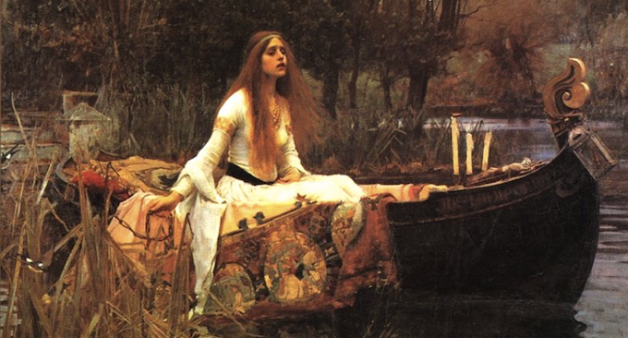Arthur Conan Doyle, author of the Sherlock Holmes stories, often grappled with a basic question: What good is God? In A Study in Scarlet (1887), for instance, the question of God hovers in the wings as he views the early Mormon movement with a leery eye (his conclusion: murderous cult), but by The Land of Mist (1926) the question has taken center stage, as the whole novel is a perilously thinly veiled excuse to heap laud upon the spiritualist movement and castigate naysayers. In his more sober days, however, he made an interesting sally at Christianity with The White Company (1891), a richly and sometimes cruelly well-researched historical novel set in 1366, just as the age of universal faith was opening into the age of schisms. Hopelessly unable to see past his own prejudices, he never manages to say anything genuine about fourteenth-century Christianity, but in failing to do so he reveals a very modern take on God that is still with us today.
The plot of Conan Doyle’s historical romp is formulaic in the extreme: Alleyne Edricson, whose father had him raised as a Cistercian oblate, is forced by his dead father’s will to spend his twentieth year outside the monastery in order to get a taste of life before he commits to vows. In surprisingly short order he has fallen in with a band of strapping young lads headed to France and Spain in search of honor, and has fallen in love with the second woman he has ever seen, who just so happens to be a comely maiden in distress. With much quothing, quaffing, and by-my-trothing, Alleyne comports himself courageously in the war, returns home dripping with accolades and glory, and whisks the comely maiden (now no longer in distress) off to join him in a cloister-free Happy Ever After.
As Alleyne is falling for the fair maiden Maude, Conan Doyle has her deliver a bold theory of religion intended to convince Alleyne to abandon the selfish uselessness of monasticism. Speaking of the clergy, she says:
I would have them live as others and do men’s work in the world, preaching by their lives rather than their words. I would have them come forth from their lonely places, mix with the borel folks, feel the pains and the pleasures, the cares and the rewards, the temptings and the stirrings of the common people. Let them toil and swinken, and labor, and plough the land, and take wives to themselves.
Olde tymey language aside, Maude makes two basic points: First, that religious people need to be useful to the ordinary folk if their life is to have any meaning; second, that in order to be useful they must be just like the ordinary people. If you want to be useful to us, she says, don’t be different from us.
Following the logic of this argument, Conan Doyle throughout the novel advances a more radical claim: if God is to be useful for men, he cannot be different from them. The God of the White Company is a helpful tool in a soldier’s arsenal. Sacraments, relics, oaths, sword-hones, armor polish, and bow wax all enable the soldier to display his martial virtue; a resourceful warrior will mouth a prayer as he takes up his bow, but the honor that results from a glorious victory belongs to God no more than to the bow-maker. It is the soldier who has made his own honor, whatever the tools he used. A useful God, then, is at man’s level, a helpful theoretical background to the theories of morality and chivalry that he is ultimately indistinguishable from.
Conan Doyle’s useful religion dominates contemporary discourse about Christianity, reducing the transcendent God to a collection of sociological data. Newspapers abound with psychological and sociological arguments for and against Christianity, proving on one hand that people who pray before bed tend to sleep more soundly through the night, while maintaining on the other hand that a religion of absolute truth claims destabilizes the pluralistic foundation of American society. Even Christians sometimes play the game, defending religious freedom by pointing to the legions of hospitals, adoption agencies, food pantries, and homeless shelters run for the betterment of society by believing Christians.
The difficulty, of course, is that while these practical dimensions really are important aspects of Christianity’s incarnational character, they do not exhaust the truth about God. God became man in Jesus Christ, but he did not thereby cease to be the transcendent God who lives in perfect beatitude. God governs the world with mercy, not so that noble heroes can prove themselves virtuous by their own merits, but so that our fallen race can be transformed by grace in serving him and loving him even on the earth. The true Christian does not mold God to the standard of human usefulness; instead, he listens to the word of the Lord and lives by the law of love. And after a life of this loving service, we hope to say: “We are useless servants; we have only done what was our duty” (Lk 17:10).
✠
Image: John William Waterhouse, The Lady of Shalott







